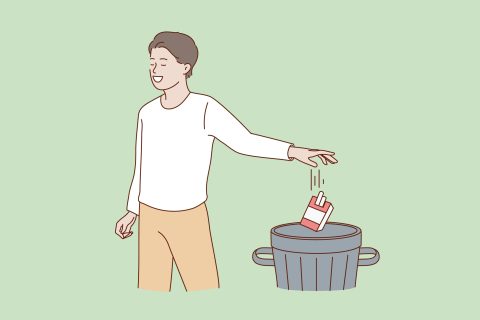In a culture focused on winning, it can be hard to know when to walk away. Annie Duke is a former professional poker player, and she joins host Krys Boyd to discuss why quitting is a key element of success and how to know when it’s time to fold ’em and move on. Her book is “Quit: The Power of Knowing When to Walk Away.”
Bonus Blog: Grit and quit are two sides of the same coin
—By Cristin Espinosa, Digital Producer for Think
Quitting has a bad rap; people often think of it as taking the easy way out. But it’s often not the easiest decision. It can even save you from wasting time, money and emotions in the future.
Nobody knows how to fold ‘em like a professional poker player, which is exactly why our guest is an expert. Annie Duke is a former poker pro and a writer and speaker. She explains that quitting can really be a good, strategic decision and how it goes together with committing to something.
“Any time we choose to stick with something, we’re—by definition—choosing not to quit it,” Duke explains. “And any time we choose to quit something, we’re—by definition—choosing not to stick to it… What we want to try to figure out at any moment is: Is the thing that I’m doing worthwhile, should I be doing it, or are other things that I might turn my attention to going to help me to achieve my goals more quickly?”
We often think of grit as a trait of a hero. However, grit doesn’t always work in our favor as it means we sometimes stick to something longer than we should when it’s just not working.
One example Duke gives is a study on cab drivers. In the study, drivers were observed on days when they were getting a lot of fares and days that were slower. The study found that cab drivers would end their drive time quickly on days when they were busy. They would stop as soon as they met some goal for how much money they wanted to earn that day.
Meanwhile, on slow days when they weren’t making money as quickly, cab drivers would stay on the job longer in hopes of eventually earning more money.
“The interesting thing is, this particular behavior from them cost them a lot of money,” Duke says. “If they were to have acted rationally, they would have made 15% more than they were. In other words, drive lots when there are lots of fares and quit when there aren’t any. They would have made 15% more money than they were.”
This study essentially shows us that “quitting while you’re ahead” isn’t always the best idea. Instead, the right moment to quit is usually when you know something isn’t going anywhere and likely won’t improve.
Listen to our full conversation by clicking the play button above. This episode is also available on Spotify, Apple Podcasts, and all your favorite podcast platforms.


